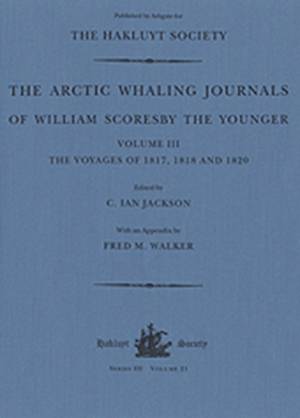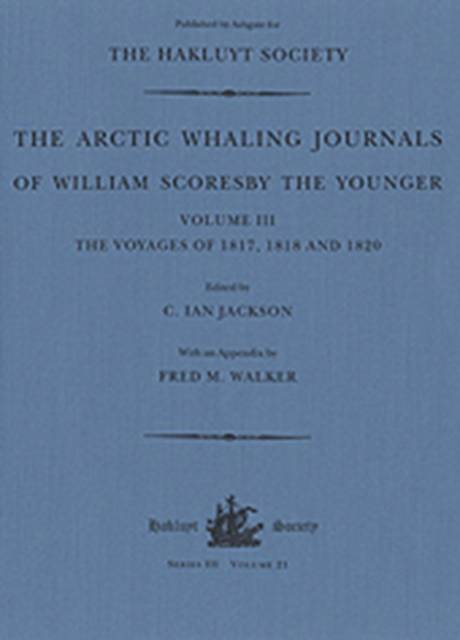
- Retrait gratuit dans votre magasin Club
- 7.000.000 titres dans notre catalogue
- Payer en toute sécurité
- Toujours un magasin près de chez vous
- Retrait gratuit dans votre magasin Club
- 7.000.000 titres dans notre catalogue
- Payer en toute sécurité
- Toujours un magasin près de chez vous
The Arctic Whaling Journals of William Scoresby the Younger (1789-1857)
Volume III: The Voyages of 1817, 1818 and 1820
William Scoresby
175,95 €
Description
This is the third and final volume in the set of William Scoresby's journals. It contains the unpublished accounts of his three voyages 1817, 1818 and 1820. During the years of the voyages in this volume Scoresby's life changed profoundly. An unsuccessful hunt for whales in 1817 led to a break with the Whitby shipowners, and command of the Fame in 1818 in partnership with his father. The partnership was a brief one, and at the end of 1818 Scoresby broke with his father and moved to Liverpool, finding new partners, completing the writing of An Account of the Arctic Regions and watching the construction of his new ship, the Baffin. Meanwhile he suffered a severe financial loss and made a profound religious commitment. After his first summer ashore for many years in 1819, he brought back to Liverpool in 1820 a 'full ship' of seventeen whales, despite being faced by mutineers in the crew who earlier had been involved in piracy in the Caribbean and, apparently, hoped to seize the Baffin 'and convey her and her valuable cargo to a foreign country'. In each of the journals, Scoresby wrote detailed descriptions of his landings: on Jan Mayen in 1817, western Spitsbergen in 1818, and the Langanes peninsula in northeast Iceland in 1820. The 1817 voyage, when Scoresby and others found the Greenland Sea relatively free of ice, involved him in the renewed British interest in arctic maritime exploration after the Napoleonic Wars. The Introduction to this volume contains a major reappraisal of Scoresby's role, especially in regard to his alleged mistreatment by John Barrow, Second Secretary of the Admiralty. The volume also contains an appendix by Fred M. Walker on the building of wooden whaleships such as the Baffin that were capable of routine ice navigation under sail as far north as 80°N, based on Scoresby's account, as Owners' Representative, at the beginning of the 1820 journal.
Spécifications
Parties prenantes
- Auteur(s) :
- Editeur:
Contenu
- Nombre de pages :
- 288
- Langue:
- Anglais
- Collection :
Caractéristiques
- EAN:
- 9780904180954
- Date de parution :
- 28-10-09
- Format:
- Livre relié
- Format numérique:
- Genaaid
- Dimensions :
- 175 mm x 246 mm
- Poids :
- 841 g







